Kōtarō Bandō
出生 : 1911-05-04, Tokyo, Tokyo Prefecture, Japan
死亡 : 1981-11-28
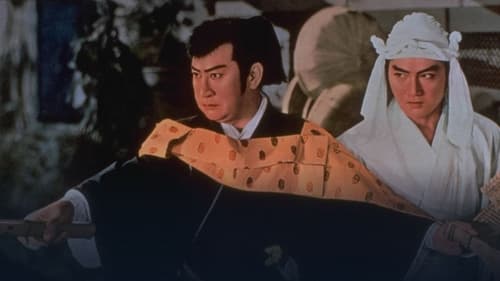
Hyôko Yagyû
The story concerns the efforts of seven master swordsman who join together to protect the new inexperienced Shogun Tokugawa Yoshimune from the evil plans of the Owari Clan's corrupt Lord. It's a colorful bunch, a drunk samurai, a master thief, a sword instructor and a Lord who is disguised as a ronin since it is an executable offense for a lord to wander outside of their domain without permission. As the Chief Magistrate becomes suspicious of the Owari plot to send men to Kodenmacho Prison to start a riot he begins to investigate the rumors. He soon calls upon the Lord of Mikazuki Castle and the Shogun's best friend to help thwart the evil ambitions and battle the rouge swordsman hired by the Owari Clan.

An injured Edo official is rescued by a vassal whose appearance is exactly like himself, and swears to sweep out the criminals from the town on his behalf.
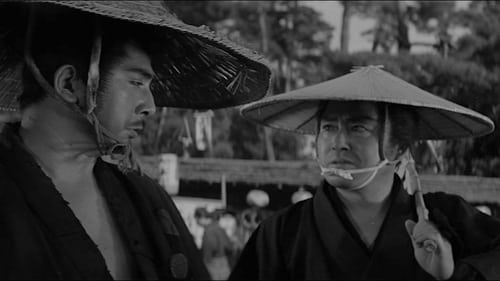
Akiyama Chobei
Yotsuya Kaidan, the story of Oiwa and Tamiya Iemon, is a tale of betrayal, murder and ghostly revenge. Arguably the most famous Japanese ghost story of all time, it has been adapted for film over 30 times, and continues to be an influence on Japanese horror today.

A story about a tomboy, Otoshi, who is good at singing, dancing and fencing.
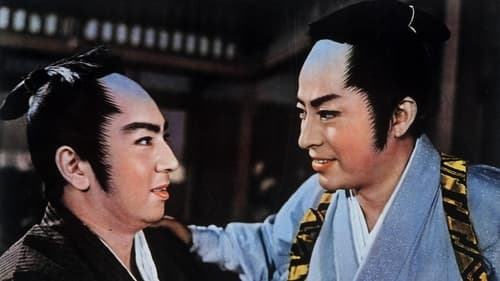
Rampant ronin Matashiro Sasai, finds himself embroiled in serious unrest after he rescues a geisha who is being kidnapped by a group of ronin.

Jidaigeki by Tai Kato
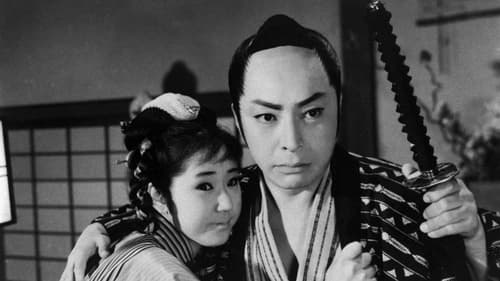
The first work in the series "Cases of An Actor in Disguise" starring Kokichi Takada, based on the original work of Tatsuro Jinde. Kasumi Ippei is a popular ronin actor, and when he is not on stage he is investigating intricate crimes, in this film Ippei will solve the abduction of seven beautiful young girls.

A family is brutally murdered in their own home and the official government's sake dealer is framed as a rebel by a corrupt member of the Shogun's Council of Elders. Young Lord decides to take on the Shogun's vile chief attendant.
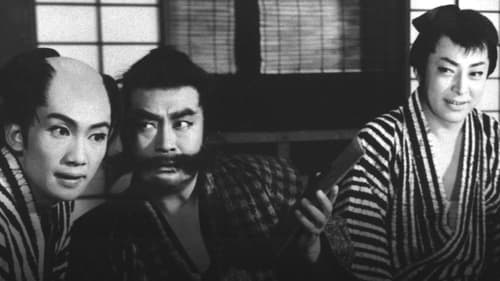
Okuma Danemon
Kota and Kosuke, from the Hikyaku-ya shop in Edo, went to Kyoto. Contrary to their carefree appearance, they carry a secret letter concerning the Aoba clan from Kyoto. A samurai who calls himself Okuma Danemon joins them on their journey, and soon people begin to appear one after another, seeking to get a secret letter...
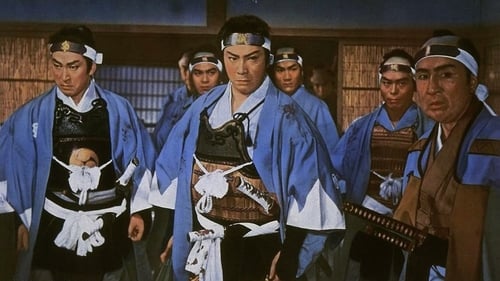
Abe Mondonosho
The stormy tale of the Shinsengumi is told from its birth by master filmmaker Sasaki Yasushi, with an all-star cast based on the original story by Shirai Kyoji. The battles between the royalists and Shogunate supporters come to a fever pitch during the Gion Festival as the exclusionists plot to burn Kyoto and kidnap the Emperor. From its earliest beginnings as a group of ronin brought from Edo to protect the Shogun when he is in Kyoto to see His Imperial Highness, the group had to face difficulties both from within and without. Commander Serizawa Kamo's corrupt practices threaten the group's very existence, as they try to recover from the bad reputation he left them with. Their redemption comes when they learn of Katsura Kogoro plans to gather men at Kyoto's Ikedaya Inn for his attack on the city. Along with Hijikata Toshizo and Okita Soji, Kondo leads the group in an attempt to save Japan from the rebels.
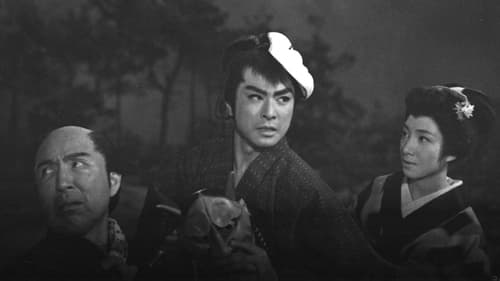
A kindhearted wandering gambler named Hajiro gets involved in a crisis of a village as he passes through and decides to lend a sword in hopes to rescue them.

After the massacre of Christians at Shimabara, followers of Amakusa Shiro band together in a plot to overthrow the shogunate in order to exact revenge on the Tokugawa. At the same time there is a succession dispute in the Kuroda clan, as one faction tried to usurp the rightful heir and take over the honored clan. Before his untimely death, the lord of the Kuroda bestowed “Nihongo”, a magnificent spear, on his finest warrior, which ultimately brings him into contact with two of Japan’s most famous historical figures, Yagyu Jubei and Miyamoto Musashi. Can the three masters of martial art join forces to defeat their enemies and save the nation?
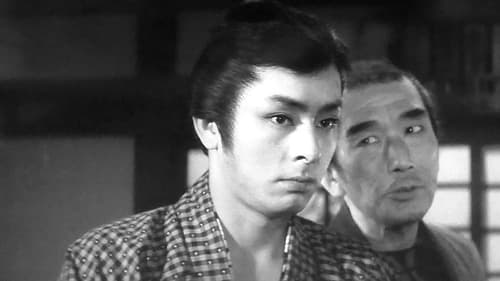
Kakei Denhachiro
A dashing edition with fights , love, and laughter, in which the sorrows and joys of the guiltless world are colored by the guiltless travel crow, Ayame 's Gantaro, with the turbulent and exciting Wakizashi Hitoshi .

Young girl Kichiza searches for her missing brother and the person responsible for the death of her parents.

Japanese film.

Araki Mataemon
Japanese comedy film.

1959 Shintoho adaptation of Kyoka Izumi's novel "A Woman's Pedigree".

1959 Japanese film, originally released in two parts.

1959 Japanese film.
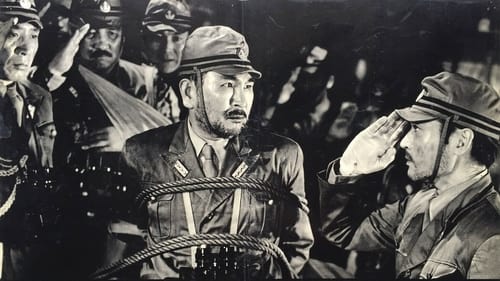
Admiral Yonai
In 1941, overpopulated Japan faces an economic boycott and its armed forces push further to the south. And despite negotiations between Japan and the U. S. A. war is declared with the attack on Pearl Harbour. Victories follow for Japan on land and sea and her forces push forward to the borders of India. But gradually the tide turns in favour of the Allies and after the atom bombings of Hiroshima and Nagasaki, Japan is compelled to accept the Potsdam Declaration and by the order of the Emperor agrees to unconditional surrender. Under the supervision of the occupation forces the International Military Tribunal opens in Tokyo to try the Japanese war leaders. Established in the cause of justice, and to prevent future aggressive wars the trials drag on for two and a half years. And on December 23, 1948, General Tojo and six other war leaders mount the thirteen steps to the gallows at Tokyo's Sugamo prison.

Japanese film, originally released in two parts.

Japanese drama film.

Sanshichi Kada
The action of this historical drama takes place against the background of poverty and hunger in the city of Edo and depicts young people rebelling against the contradictions of feudal society.

A film about sumo wrestler Wakanohana Kanji I. He was nicknamed "Devil of the dohyo" due to his excellent fighting spirit and endurance.

Japanese "kayo" film centered around the song "Wakai omawari-san" by Shiro Sone.

1956 Japanese film, originally released in three parts.

Japanese drama film, originally released in two parts.

In the first group of Yoshitake Ichi and Taketatsu Sada Preparatory Training, the team leader was Sou Adachi, a veteran warrior with strict training. Yoshitake's father was called, and his mother lived in the house where he used to work, but Midori, a female student at that house, secretly loved Yoshitake.

Yasunosuke
A remake of High Noon (1952) as a Japanese jidai-geki sword-fighting movie.
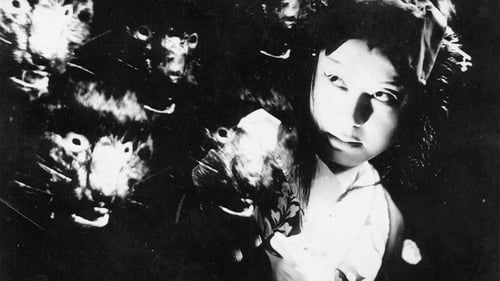
A kabuki actress is murdered. Her pet cat laps its mistress's blood and becomes a demon possessed by the vengeful murder victim.

A Japanese drama featuring the one-eyed, one-armed swordsman

The Lord of Okazaki is killed by his brother-in-law. Although the Lord's widow bears a child, she is also killed. Then, a ghost cat begins stalking in the castle.

Okoyo, the mistress of Lord Arima, fears that she is being replaced by a younger woman named Otaki. In a fit of jealousy, she kills the younger girl. The dead woman's cat licks her blood and becomes a demon, seeking revenge on Okoyo
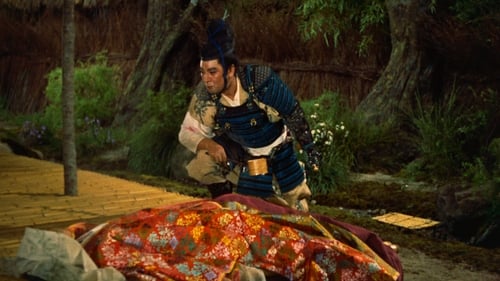
Rokurō
Japan, 1159. Moritō, a brave samurai, performs a heroic act by rescuing the lovely Kesa during a violent uprising. Moritō falls in love with her, but becomes distraught when he finds out that she is married.

A woman loses her son through an evil conspiracy and commits suicide. Shortly afterwards a ghost cat begins haunting the conspirators. This is Takako Irie's first bakeneko (ghost cat) movie; it started a Daiei cycle which was very popular at the time in Japan.

Dedication of the Great Buddha is a 1952 Japanese film directed by Teinosuke Kinugasa. It was entered into the 1953 Cannes Film Festival.

To no Chujo
Genji, the illegitimate offspring of a Japanese potentate, goes by the philosophy of "love 'em and leave 'em" as a matter of course. Only when his heart is broken by Awaji does Genji realizes how much pain he himself has caused.

Set in the Edo-era, a smuggling vessel runs into conflict between the Matsumae clan and the Ainu in Hokkaido.
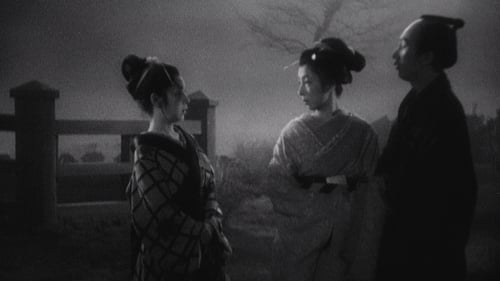
Seinosuke
Utamaro, a great artist, lives to create portraits of beautiful women, and the brothels of Tokyo provide his models. A world of passion swirls around him, as the women in his life vie for lovers. And, occasionally, his art gets him into trouble.

The Opium War is a 1943 black-and-white Japanese film directed by Masahiro Makino. "Ahen senso" in Japan refers to the First Opium War. The story of the film concerns this war.

Hiromasa Nomura World War II era film

Followup film to Osaka Elegy - Osaka Woman

Toyotomi Hideyori
The Siege of Osaka

Gonza
Two cowardly palanquin carriers know the culprit of a murder but are too scared to report it to the police. In the mean time, an innocent man is arrested as the murderer and chaos ensues. Pre-war jidaigeki film.



Shinzaemon Katsuta
This 1932 adaptation is the earliest sound version of the ever-popular and much-filmed Chushingura story of the loyal 47 retainers who avenged their feudal lord after he was obliged to commit hara-kiri due to the machinations of a villainous courtier. As the first sound version of the classic narrative, the film was something of an event, and employed a stellar cast, who give a roster of memorable performances. Director Teinosuke Kinugasa was primarily a specialist in jidai-geki (period films), such as the internationally celebrated Gate of Hell (Jigokumon, 1953), and although he is now most famous as the maker of the avant-garde silent films A Page of Madness (Kurutta ichipeji, 1926) and Crossroads (Jujiro, 1928), Chushingura is in fact more typical of his output than those experimental works. The film ranked third in that year’s Kinema Junpo critics’ poll, and Joseph Anderson and Donald Richie noted that 'not only the sound but the quick cutting was admired by many critics.



























